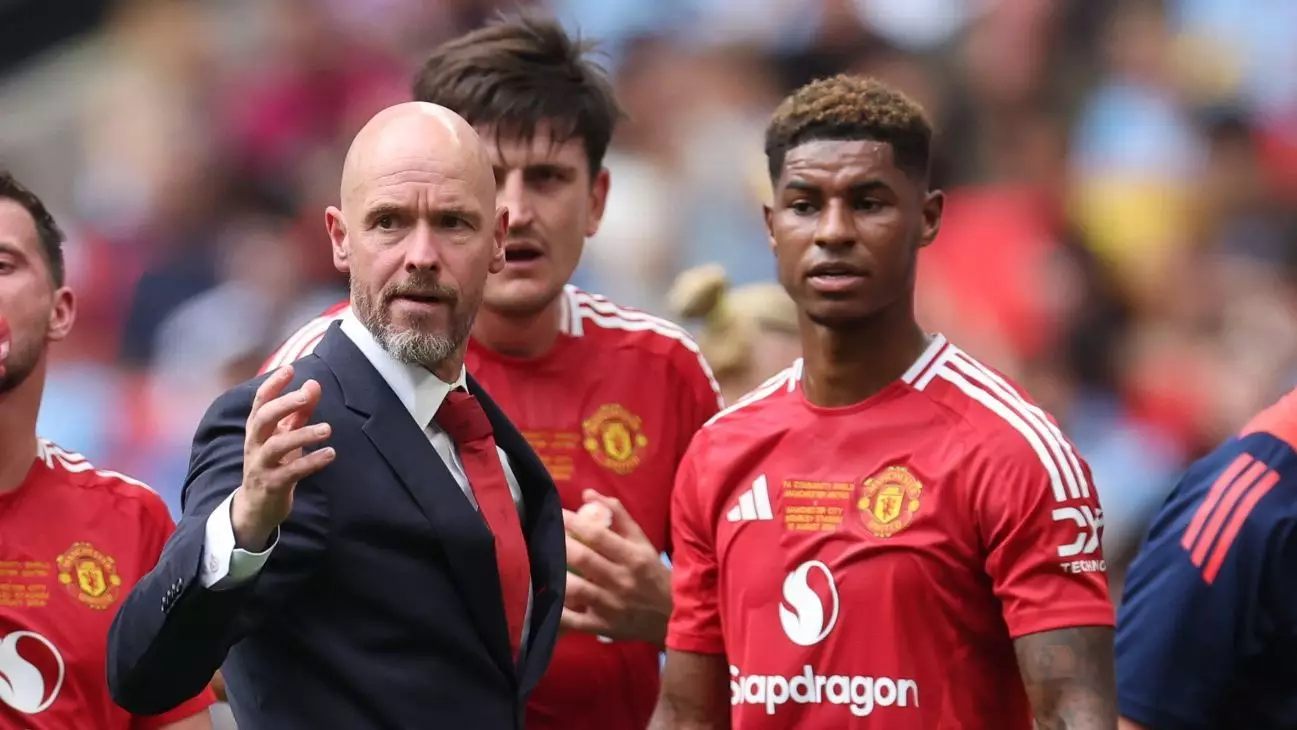In a high-pressure environment like the Premier League, decisions made by managers are often scrutinized intensely. Manchester United’s boss, Erik Ten Hag, recently faced fierce criticism following his decision to bench star forward Marcus Rashford during a match against Crystal Palace. Although the rationale presented by Ten Hag was based on tactical rotation, pundits quickly jumped on the opportunity to question the rationale behind this choice. Such analyses often detract from the complexities of managing a top-tier football club, where player welfare, strategy, and results all intertwine in a delicate balance.
Despite boasting a flurry of attacking talent and a brief moment of resurgence, Manchester United left Selhurst Park with only a single point. This outcome came as a shock considering they dominated much of the first half yet failed to capitalize on their opportunities. Rashford’s recent form—scoring three goals in his last two outings—made this decision to bench him particularly noteworthy. The match showcased the perennial issue of missed chances, a flaw that has haunted United in previous fixtures. Alejandro Garnacho, his replacement, had a golden opportunity to make a difference but squandered it, a problem that highlights the importance of continuity in situations where rhythm and confidence are crucial.
Pundit commentary plays a significant role in shaping public perception of players and managerial choices. Sky Sports pundit Jamie Redknapp hinted at possible underlying tensions between Ten Hag and Rashford, fueling further speculation. This reflects a broader issue in sports media, where narratives can be spun without sufficient evidence. Ten Hag’s rebuttal to this speculation—emphasizing his satisfaction with Rashford’s professional conduct—raises an important point about accountability in commentary. It also invites reflection on how narratives can distract from the actual football being played.
Following the draw against Crystal Palace, Manchester United find themselves languishing in the bottom half of the league table, a concerning position for a club of that stature. As they prepare for their next fixtures against FC Twente in the Europa League and a critical Premier League match against Tottenham, the stakes are undoubtedly high. The ability to remain resilient and find effective solutions to their attacking woes will be paramount to regain momentum. Ten Hag’s earlier dismissals of speculation signal his intention to maintain focus on team dynamics rather than getting bogged down in outside noise.
Ultimately, Ten Hag’s decisions and the reactions they provoke highlight the need for a broader understanding of managerial roles in football. The intricacies of player management, match strategy, and the repercussions of public perceptions demand a nuanced approach. Ten Hag’s emphasis on rotation should not be misconstrued as disregard for Rashford’s contributions, but rather viewed in the larger context of a long season, where player fatigue and optimal performance significantly influence outcomes. As Manchester United strives to reclaim its place among the football elite, managing talent and navigating external narratives will be just as crucial as the tactics applied on the field.


Leave a Reply